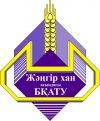The third year of the SAGRIS project implementation (January-December 2022) became a focus on the methodological content of the SAGRIS modules, testing the developed innovative materials, building the capacity of partner universities and strategic interaction between agricultural universities in Europe and Kazakhstan in the field of doctoral studies, quality control of the project and its results. The following aspects of activities and activities can be distinguished:
- Development of content tables for module descriptions;
- Conducting a block of seminars on SAGRIS modules;
- Finalization of the strategic document on networking;
- External evaluation of the quality of the project (interim report)
- Purchase of equipment for the implementation of SAGRIS modules and improvement of the level of training of third-level students.
This project is aimed at solving issues in the field of training scientific and pedagogical personnel in the field of agricultural sciences according to international quality standards. For Kazakhstan as an agricultural region, the issues of the agrosystem of the future are of national, interregional and international importance. During the implementation of the project, it is planned to develop and implement 4 educational disciplines/modules in the field of interdisciplinary sciences in different regions, which will increase the level of knowledge, competencies and qualifications of doctoral students. When developing educational programs, a transdisciplinary approach will be used, which will help in conducting various research in the field of agriculture and introducing innovations. In addition, the project is also aimed at increasing human resources, updating the material and technical base and literature at the university in accordance with international standards and best practices, which will undoubtedly help the university strengthen international and interregional exchange and scientific cooperation in the field of agricultural sciences among project partners.
